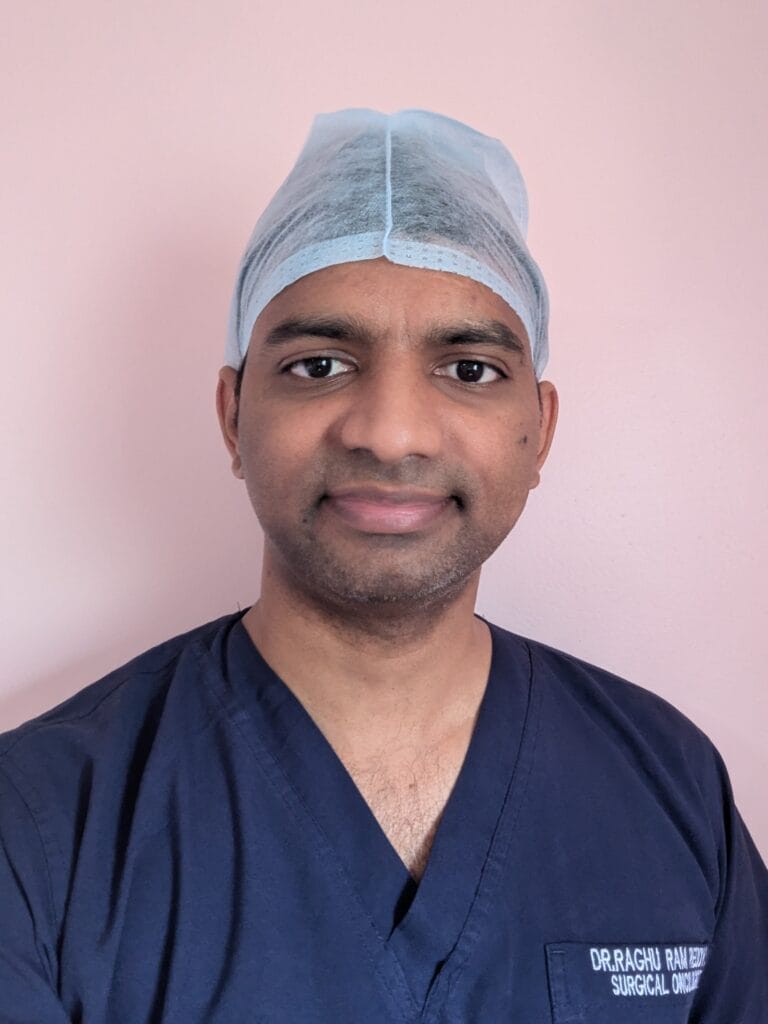Low Anterior Resection (LAR) Surgery for Rectal Cancer at PI Health Cancer Hospital

Organ-Preserving Surgery for Mid to Low Rectal Tumors
Low Anterior Resection (LAR) is a common surgical option for treating rectal cancer, especially when the tumor is situated in the middle or lower sections of the rectum. The main aim of LAR is to eliminate the cancer while keeping the anal sphincter intact, which allows patients to continue having normal bowel movements without needing a permanent stoma (colostomy).
At PI Health Cancer Hospital, we take pride in our expertise in performing LAR surgeries using cutting-edge minimally invasive and robotic techniques. This approach ensures precision, enhances safety, and promotes a quicker recovery for our patients.
What is Low Anterior Resection (LAR)?
LAR involves surgically removing:
The cancerous part of the rectum, along with nearby fatty tissue and lymph nodes.
In some instances, a segment of the sigmoid colon may also be removed.
Once the cancerous tissue is excised, the remaining colon is reconnected to the rectum (anastomosis) to preserve the natural rou
When is LAR Surgery Recommended?
LAR is typically recommended for:
- Rectal cancer located in the middle or lower third of the rectum.
- Early to locally advanced tumors where the anal sphincter can be preserved.
- Certain non-cancerous conditions, such as large benign polyps or inflammatory diseases.
How is LAR Surgery Performed?
At PI Health Cancer Hospital, LAR can be performed through:
Open surgery
- Laparoscopic surgery (a minimally invasive option)
- Robotic-assisted surgery (which offers greater precision and minimizes tissue damage)
Surgical Steps:
- Removal of the affected section of the rectum and the associated lymph nodes.
- Anastomosis—connecting the healthy ends of the colon and rectum.
In some cases, a temporary diverting ileostomy may be created to safeguard the new connection.
Recovery After LAR Surgery
Hospital Stay:
Usually lasts about 5 to 7 days.
Full Recovery:
Expect around 6 to 8 weeks, but this can vary based on your overall health and the specific surgery performed.
Common Post-Surgery Symptoms
- Increased frequency of bowel movements
- A sense of urgency or feeling like you haven’t fully emptied your bowels
- Potential for Low Anterior Resection Syndrome (LARS), which can lead to irregular bowel function but typically gets better with time.
Possible Risks & Complications:
- Leakage at the surgical connection
- Bowel dysfunction (LARS)
- Risk of infection or bleeding
- Temporary changes in urinary or sexual function
At PI Health Cancer Hospital, we ensure that every patient receives thorough post-operative care aimed at reducing complications and aiding recovery.
Life After LAR Surgery:
Most patients find that their bowel function returns to normal over time, allowing them to lead active lives. It’s important to adapt to new bowel habits and dietary changes during the initial recovery period.
PI Health Cancer Hospital Offers:
- Pelvic floor rehabilitation therapy
- Nutritional advice
- Stoma care if a temporary ileostomy was performed
- Emotional and psychological support
Why Choose PI Health Cancer Hospital for LAR?
- Highly Skilled Colorectal Surgeons
- Cutting-Edge Laparoscopic & Robotic Technology
- Comprehensive Cancer Treatment Team
- Customized Rehabilitation Programs
- Holistic Approach to Patient Care
Our mission is to deliver top-notch rectal cancer care while ensuring our patients enjoy the best possible quality of life.
About Author
Dr. Raghu Rami Reddy S
M.B.B.S, M.S, DRNB Surgical Oncology, FALS – Oncology
Dr. Raghu Rami Reddy is a highly skilled and experienced Surgical Oncologist specializing in the diagnosis and treatment of various cancers. With a commitment to providing the highest standard of care, Dr. Reddy utilizes advanced surgical techniques to treat a wide range of oncological conditions, including breast, gastrointestinal, and head and neck cancers, among others.He is dedicated to offering personalized treatment plans that are tailored to each patient’s unique needs, ensuring optimal outcomes and quality of life.

